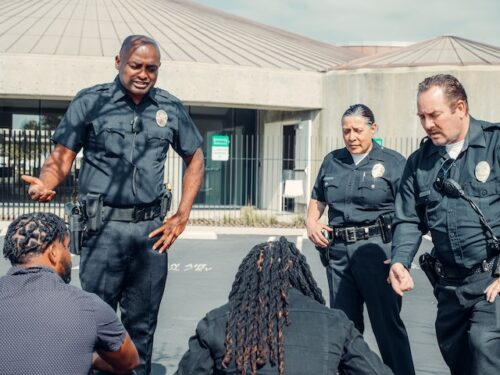
When approached by a police officer who suspects you’ve committed a crime, you may think you have nothing to worry about. After all, you have a solid alibi. However, after they speak with you, you find yourself in handcuffs, waiting to make a phone call from your local jailhouse. Unfortunately, when you talk to the police without an attorney present, you may not know that they’re asking leading questions and manipulating what you say to fit the narrative that you are guilty. Keep reading to learn more about how this is possible and discover how a Cobb County criminal defense lawyer can help you.
Why Shouldn’t I Talk to the Police Without an Attorney?
When you speak to the police without legal representation, you may not know that the questions they’re asking you are phrased in such a way as to get you to admit you did something illegal. For example, if you are pulled over and the officer says something along the lines of, “Well, if you are drunk, you fooled me!” and you offer any sort of affirmation like a “Haha, sure,” “Yup,” or even a nod, the police officer can take that as an admission that “Yes, I am drunk and yes, I did fool you.” These questions or statements may seem innocent to someone who does not have an attorney present, but they are poised to make you incriminate yourself.
Similarly, the police are allowed to lie to you even though it is illegal for you to lie to them. This means they can tell you they have you on video committing the alleged offense or that if you provide a confession, they can make a deal with you. It’s vital to understand that the police cannot make deals with those convicted of crimes. The only person with this authority is the district attorney, but the police cannot provide a lesser sentence if you confess an offense to them because they are not responsible for sentencing.
What Should I Say if the Police Want to Speak With Me?
If arrested or the police approach you to speak with you about a crime they suspect you have committed, you should be polite yet remain silent. When arrested or issued a summons, the only information you are legally required to give the officer is your name or a form of identification. Other than that, you should inform the officer you are invoking the right to remain silent and that you want to retain the guidance of a lawyer. When you tell them you want to speak with an attorney, they should stop questioning you. However, this is not always the case, and you should continue to remain silent until your legal counsel arrives.
When you are facing criminal charges, ensuring you have an attorney present to guide you through the process is essential. Unfortunately, many people are unfamiliar with the law, and the police will use that to their advantage. If you are arrested or questioned, knowing your rights is vital. At the Miller Law Practice, our competent criminal attorneys represent a wide variety of cases. Contact us today to learn how we can help when you’re in legal trouble.